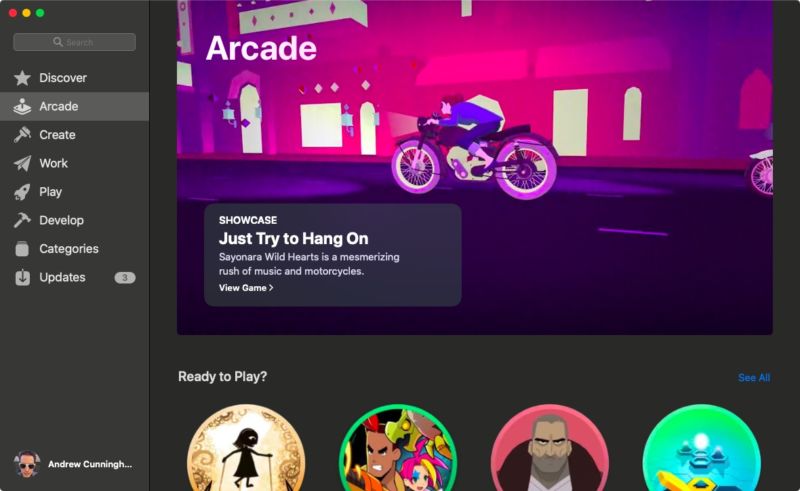Tech Nuggets with Technology: This Blog provides you the content regarding the latest technology which includes gadjets,softwares,laptops,mobiles etc
Monday, December 16, 2019
Decathlon's 'contact-details' demand sparks row
Online is 1.6% of retail sales in India: World Bank report
Fashion platform Zilingo acquires Sri Lankan SaaS startup nCinga for $15.5M
Singapore’s fashion startup Zilingo has acquired Sri Lanka’s SaaS startup nCinga in a $15.5 cash and stock deal, the two said today.
nCinga, founded in 2013, offers an IoT platform to enable real-time production monitoring on factory floors and data analytics tools. Its acquisition is one of Sri Lanka’s largest tech exits in recent times, the two said.
Zilingo, which has built several pieces of supply chain — manufacturing, logistics, payments, etc for retailers or brands, said it will deploy the Sri Lankan startup’s Manufacturing Execution System (MES) software across its network of 6,000 factories and 75,000 businesses.
Ankiti Bose, co-founder and chief executive of Zilingo, said, nCinga’s product has helped the startup “drastically improve” efficiency and drive insights by digitizing the shop floor. “Their work has been crucial to our mission of creating a transparent, sustainable, economically viable and socially responsible apparel supply chain,” she said.
Retailers continue to struggle with meeting consumer demand for fast, responsibly produced products due to inefficiencies and information asymmetry, said Zilingo, which is steps away from becoming the latest Southeast Asian unicorn. The acquisition will enable it to help customers in the United States, Europe and Australia, where brands traditionally lack transparency over supply chain and manufacturing processes, it said.
More to follow…
Amazon’s third-party merchants are now barred from using FedEx Ground for Prime shipments
Third-party vendors were told by Amazon over the weekend that they are barred from using FedEx’s ground delivery services for Prime shipments. The Wall Street Journal reports that a message sent by Amazon to merchants on Sunday said the ban will last “until the delivery performance of these ship methods improves.” The e-commerce platform will still allow FedEx Ground for non-Prime shipments and FedEx Express, a faster but pricier option, for Prime.
Third-party sellers now account for more than half the products sold on Amazon.com and the company’s decision on FedEx’s ground delivery comes during the peak of the holiday shopping season. Over the summer, FedEx ended partnerships with Amazon to provide it with express air deliveries and ground shipments.
An Amazon spokesperson said that the company is managing cutoffs for delivery by Christmas and want to ensure that customers receive their packages on time. TechCrunch has also contacted FedEx for comment.
Both FedEx and UPS both experienced recent shipping delays, which they said were caused by record shipping volumes and weather issues.
Amazon has also been under scrutiny by federal antitrust regulators, with some complaints centered on whether or not it forces sellers to rely on its own logistics network. The company’s focus on its warehouse and delivery services, combined with its status as the largest online retailer in the U.S., has turned it into a major competitor against FedEx, UPS and the United States Postal Service.
A recent Morgan Stanley report estimates that Amazon is currently delivering about 46% of the items ordered through its U.S. site and predicts Amazon Logistics not only start providing shipments for non-Amazon orders, but overtake FedEx, UPS and the USPS in shipment volume by 2022.
Amazon launches Alexa Knowledge Skills in preview, a new skill type that organizations can use to create internal FAQs, glossaries, and more without coding (Kyle Wiggers/VentureBeat)
Kyle Wiggers / VentureBeat:
Amazon launches Alexa Knowledge Skills in preview, a new skill type that organizations can use to create internal FAQs, glossaries, and more without coding — In yet another step toward the enterprise side of the burgeoning conversational intelligence segment, Amazon today launched Alexa Knowledge Skills …
Chinese electronics makers dent Apple & Samsung's business in India
Mobile phone makers, MAIT urge govt to reinstate MEIS; seek tax rationalisation
Tel Aviv-based Arbe, which is developing a high-resolution radar chipset for autonomous vehicles, raises $32M Series B (Kirsten Korosec/TechCrunch)
Kirsten Korosec / TechCrunch:
Tel Aviv-based Arbe, which is developing a high-resolution radar chipset for autonomous vehicles, raises $32M Series B — It's not enough for an autonomous vehicle to see the world around it. These vehicles need to understand what they're seeing in real time.
Realme X2, Realme Buds Air Launching in India Today: How to Watch Livestream
Vivo V17 Set to Go on Sale for the First Time in India Today
SpaceX successfully launches Falcon 9 rocket and lands the booster, but misses the fairing catch
SpaceX has successfully launched its 13th rocket this year, and its 11th Falcon 9 (the company also flew two Falcon Heavy missions in 2019). The launch included the re-use of a twice flown Falcon 9 booster stage, which it recovered again with a landing at sea aboard one of its droneship landing pads, and a recovery attempt of both halves of the nose cone fairing that protects the spacecraft’s cargo and that is shed before the upper stage reaches its target orbit.
This launch carried a Boeing-built satellite that was created to provide communications services for customers Kacific and SKY Perfect JSAT, and it seems to have delivered the payload to the target orbit as planned. But primary mission success is only half the story here – and the other half is key to SpaceX’s efforts to make even more of its launch system reusable over time.
Elon Musk’s rocket company has been recovering Falcon 9 (and more recently, Super Heavy) boosters since 2015 and has done 47 successful first stage recoveries in total, but its fairing catching system is a much more recent introduction. SpaceX first controlled the descent of, and recovered a fairing half in 2017 – but did so by dropping it into the ocean. It later began attempting to recover it using a barge recovery ship to keep from having to fish it out of the sea, and managed to do that successfully for the first time with one half of the two-part fairing used in a Falcon Heavy launch this past June.
The attempt to catch the fairings was not successful – SpaceX said on Twitter that both halves missed the waiting boats “narrowly,” but added that recovery teams will still seek to pull them from the ocean and see about re-using them on future missions. SpaceX re-flew a recovered fairing in November for the first time, and Musk has said previously that re-use of this part could save SpaceX as much as $6 million per mission, which is around 10% of the total cost of launch.
Indian B2B food tech startup HungerBox raises $12M from Paytm and others
HungerBox, an Indian food tech startup that has courted 10 of the 11 largest companies in the country to use its services, today announced it has raised $12 million from Paytm and others as it looks to sign clients in Southeast Asia.
The three-year-old startup’s new financing round, a Series C, was funded by a consortium of Indian and international investors, including payments firm Paytm and NPTK, an Asian VC fund that invests in emerging firms. Existing investors Sabre Partners and Neoplux also participated in the round, which pushes the Bangalore-based startup’s to-date raise to $16.5 million.
HungerBox offers management services to companies and institutions to improve and run their in-house cafeterias and canteens. HungerBox also enables its clients to connect with food partners through an app and get real-time updates of their order.
The startup, which also provides these firms with a point-of-sale machine, helps them get better insight into the quality of food being catered to their employees, and enables scheduled delivery and tracking of orders to address the long queues, said Sandipan Mitra, co-founder and chief executive of HungerBox, in an interview with TechCrunch.
“We all talk about the food delivery to consumers, but not many are looking to improve the quality of food and how it is being catered to tens of millions of employees in the country each day,” he said. “It’s a challenge that has not been addressed well.”
It turns out, when a startup finally looked into the space, many quickly jumped to appreciate it. HungerBox has amassed more than 126 large businesses and institutions — with more than 100,000 workforce each, across 18 Indian cities, said Mitra. Food delivery startups Swiggy and Zomato have started to explore this space, too, in recent quarters.
HungerBox is processing 560,000 orders each day, a figure that is growing 10% every month, claimed Mitra. The startup’s solutions are today employed at more than 535 cafeterias for its clients that work in IT / technology, retail, healthcare, aviation, education, financial services and manufacturing, he said. He declined to reveal the name of the clients, citing confidential agreements.
Annual food sales on the HungerBox platform have exceeded $100 million, he said.
The startup, which employs 1,500 people, will use the fresh capital to fuel its expansion in 10 additional Indian cities and to markets in Southeast Asia, said Mitra.
In a statement, Madhur Deora, president of Paytm, said HungerBox has enabled Paytm to add new use cases for the company’s payments business and digitization of offline transactions.
“HungerBox is the market leader in the institutional food tech space and we will partner closely with them and bring the benefits of Paytm’s ecosystem to HungerBox,” he said.
Apple Arcade introduces a cheaper annual subscription option

Enlarge / Apple Arcade on the Mac. (credit: Andrew Cunningham)
For a couple of years now, Apple has been exploring subscriptions as a way of bolster revenue in the face of slowing iPhone growth. This year saw a turning point in that strategy, with Apple TV+, Apple News+ and Apple Arcade joining the company's suite of subscription services that already included Apple Music, AppleCare, and iCloud.
But as this is a relatively new frontier for the company (at least in terms of emphasis), Apple is still testing the waters of different approaches. The latest of these is the introduction of a discounted annual subscription to Apple Arcade priced at $49.99, about a $10 savings compared to the $4.99 monthly subscription that was introduced in September.
Apple Arcade offers subscribers Netflix-style access to around a hundred games on iPhone, iPad, Mac, and Apple TV. While many games have flown under the radar or not made much public impact, a few such as Sayonara Wild Herts, Grindstone, What the Golf?, and Where Cards Fall have received rave reviews from consumers and critics or found significant financial success through the service.
House passes Secure and Trusted Communications Networks Act, barring FCC from funding federal purchases from Huawei, other telcos deemed national security risks (Emily Birnbaum/The Hill)
Emily Birnbaum / The Hill:
House passes Secure and Trusted Communications Networks Act, barring FCC from funding federal purchases from Huawei, other telcos deemed national security risks — The House on Monday passed legislation that would bar the government from buying telecommunications equipment from companies deemed …
Sunday, December 15, 2019
Facebook tracks in-store shopping, targets users with ads: Report
Japan allocates another $9.9B to boost its chip, quantum computing, and AI endeavors, with an undisclosed amount going to chip startup Rapidus (Bloomberg)
Bloomberg : Japan allocates another $9.9B to boost its chip, quantum computing, and AI endeavors, with an undisclosed amount going to chi...
-
Jake Offenhartz / Gothamist : Since October, the NYPD has deployed a quadruped robot called Spot to a handful of crime scenes and hostage...
-
Answers to common questions about PCMag.com http://bit.ly/2SyrjWu https://ift.tt/eA8V8J
